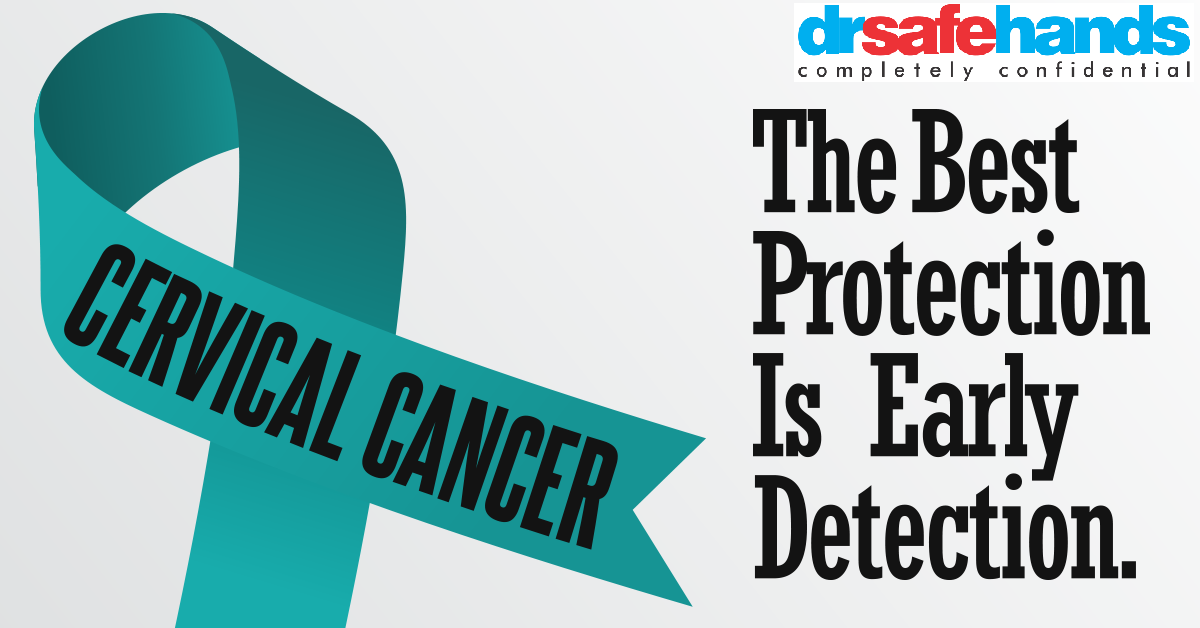What is Cervical Cancer?
The cervix is the lower and narrow end of the uterus; it connects the vagina (the birth canal) to the superior part of the uterus. The uncontrolled growth of cells in this region is termed as cervical cancer.
Cervical Cancer Screening TestCervical cancer can be treated when found early by doing a simple test and can be prevented with regular screening tests and follow up.
It also is highly curable when begin and treated early.
What causes Cervical Cancer?
It is caused by a virus called Human Papilloma virus or HPV. These are of various types, not all types of HPV can cause cervical cancer. Two strains of the HPV virus-HPV 16 and HPV 18 are known to be responsible for 70% of all cases of cervical cancer.
HPV infection is spread through sexual intercourse or skin-to-skin contact. It can be transferred to any individual who is sexually active, or if you or your partner have had sex with several others. However, any woman who has ever had sex is at risk for HPV.
What is the prevalence of Cervical Cancer in India?
Every year in India, 122,844 women are diagnosed with cervical cancer and 67,477 die from the disease.
It is the second most widespread cancer in women aged 15–44 years.
Cancer registry Period
CITY YEAR NEW CASES
Ahmadabad 1993-1997 799
Bangalore 2005-2007 1,541
Mumbai 2003-2007 3,388
New Delhi 2003-2007 4,280
*Data accessed at 05 may. 2015
Can it be prevented?
Early detection is the key in increasing survival rates and so educating everyone on the disease, its symptoms and ways to prevent it is key.
Early Vaccination is recommended to girls aged 11 to 12 years as it allows better immune system, before she’s likely to expose with HPV.
- Safe sex practice like using condoms
- Minimum sexual partners.
- Regular Pap tests screening
- Timely vaccination against the cancer causing virus.
- leading a well and healthy lifestyle
- eating a balanced dietAvoiding smoking & alcoholism.
- Avoiding smoking & alcoholism.
Cervical cancer vaccination?
- Cervical cancer vaccine can prevent the chances of cancer, as it protects against the Human Papilloma Virus (HPV)
- It is good to receive the cervical cancer vaccine is 9 to 10 years old, as it allows a girl’s immune system to be activated before she is likely to come across HPV through sexual contact.
- Any women has 80% chances to contract HPV throughout her lifetime, as condoms will not help in protecting against HPV.
- This vaccine blocks two types of HPV (types 16 and 18). Thus, it stops cervical cancer developing before it can even begin.
- Thee vaccination is completed in the course of 3 doses, the first injection at chosen date, the second injection is given at 1 month after the1st dose and the last injection at 6 months after the 1st dose has been administered.
- This Vaccination effective against 70% of cervical cancer that is caused by HPV type 16 and type 18.
What are the symptoms and signs of cervical cancer?
- Any unusual vaginal bleeding may be after sexual intercourse, in between periods or after the menopause.
- Pelvic pain/ discomfort.
- Painful sex.
- Abnormal Vaginal discharge
- Weight loss
Who is at risk?
- Sex at early age
- Sexually active women
- Smoking and alcoholism
- HIV (the virus that causes AIDS) or any other immune compromised condition
- Using birth control pills for a long time (five or more years).
- Having given birth to three or more children or multiple pregnancies.
How can it be diagnosed?
If there are any symptoms, you should talk to your healthcare provider. After detailed medical history and a physical exam, including a pelvic exam and a Pap test, treatment can be planned. It could be:
- Organized and quality assured cytology-based screening programmes.
- There are 3 different types of screening tests are currently available:
1. Conventional (Pap) test and liquid-based cytology (LBC)2. Visual inspection with Acetic Acid (VIA)3. HPV testing for high-risk HPV types
What is PAP TEST?
The Pap test is a routine screening test, which is used to find out the abnormal cell changes of the cervix.
It is widely used to screen for cervical cancer.
What are the treatments available?
Treatment of cervical cancer depends upon the age, general health of the women, and stage of cancer. It can be a single or could be the combination of these therapies, like:
- Surgical removal of the cancer, depending upon the location and extent of cancer or whether a woman want to have children or not.
- Radiation therapy , (often used in combination with surgery) which uses high-dose X-rays or implants in the vaginal cavity to kill cancer cells.
- Chemo radiation, which is a combination of chemotherapy and radiation. It is frequently used to treat both early-stage and late-stage cervical cancer.
- Chemotherapy , which uses medicines to destroy cancer cells. It is mainly used to treat highly developed cervical cancer.
How can we spread awareness about cervical cancer?
We can educate and make people aware by:
- Displaying posters/ hoardings on main highways/ roads/traffic signals
- Posters in female toilets.
- Distribute leaflets in the market/high footfall areas.
- Involve media/ endorse Bollywood celebrity for the cause.
- Organizing awareness events in the malls, schools.
- Special classes should be given to girls in the schools, along with the informative brochure.
- Sharing posts/ messages on facebook, whatsapp, and other social media websites.
- Cervical cancer vaccination should be mandatory in schools.
- Free cervical cancer screening with local healthcare provider/laboratory.
- We can ask people to “take a pledge to get screened regularly”
- Campaigns to make men aware too, so they motivate their female partners to get screened.
Get a free online consultation on Cervical Cancer at DrSafeHands Female Clinic.
Book HIV Early Detection Test

Leave a Reply